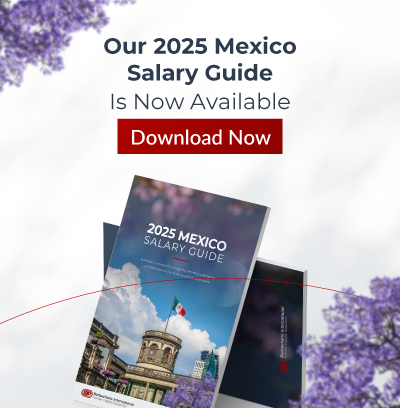
When the COVID-19 pandemic hit in early 2020, businesses everywhere faced unprecedented disruption. Companies like Airbnb had to rethink their entire operating models. With global travel halted, Airbnb’s leadership quickly pivoted, focusing instead on local stays and long-term rental options (Hospitality Insights). The term ‘agile’ means flexible and adaptive, and this approach helped Airbnb survive the pandemic and positioned them to hit the ground running when travel resumed.
This example brings home the importance of agile leadership in today’s volatile, uncertain, complex, and ambiguous (VUCA) world. Whether they’re responding to pandemics, technological advancements, or changing consumer behaviors, leaders must adapt swiftly and decisively. Agile leadership is a key ingredient in the recipe for maintaining success during the frequent disruptions we will inevitably face.
The Role of Agile Leadership in a Disruptive World
Agile leadership keeps companies competitive in a world where the only constant is change. Disruptive markets, driven by shifting customer expectations, technological innovations, and economic instability, require an adaptable, resilient leadership style. Agile leadership lets businesses pivot quickly, respond to challenges in real time, and maintain momentum even when the landscape is unpredictable.
Traditional leadership models rely on rigid hierarchies and a “that’s-the-way-we’ve-always-done-it” mentality that almost always leads to slow decision-making. On the flip side, agile leadership emphasizes a decentralized, team-driven approach. Agile leaders instill a culture that empowers employees to make decisions and respond rapidly to market changes. This decentralization speeds up responses and encourages innovation, as teams are free to experiment and learn from occasional failures (World Economic Forum).
A primary element of agile leadership is embracing, rather than resisting, change. Respected leadership consulting company OnDemand Leaders recommends that leaders “embrace change as an opportunity rather than a threat. Cultivate a mindset that is open to new ideas and approaches.” Agile leaders understand that change is unavoidable and that organizations can either evolve with it or become irrelevant.
The Agile C-Suite: Leading by Example
For agile leadership to succeed in an organization, it must start at the top, with the C-suite leading by example. Harvard Business Review emphasizes that for any transformation to succeed, the highest levels of leadership must embrace it. Dynamic leaders in the C-suite set the tone for the organization, encouraging an adaptive culture.
A flexible and responsive C-suite doesn’t neglect long-term strategic planning; they simply balance it with short-term tractability. While traditional leaders might focus on stability, agile leaders accept uncertainty and adjust strategies as circumstances arise. Their adaptability trickles down through the organization, encouraging teams to adopt the same mindset.
Agile leaders also prioritize getting different teams to collaborate. They break down silos, enabling departments to work together harmoniously by sharing information and resources to tackle company-wide challenges. Cross-functional teams unite contrasting perspectives and expertise, so organizations can creatively address thorny problems.
Building an Agile Culture: Empowering Teams for Success
At its heart, agile leadership means empowering teams to take ownership of their work and make independent decisions. This approach is a must if you want your teams to respond quickly to market changes—and you do! Says McKinsey senior partner Aaron De Smet, “Because of inherent autonomy and freedom, leadership […] comes from a self-disciplined approach […] not in fear of punishment or sanction but in service of purpose and passion.”
Show me an empowered team, and I’ll show you a motivated, engaged, and productive team. Agile leaders don’t micromanage; instead, they remove obstacles that hinder their teams. This shift from command-and-control to servant leadership allows leaders to focus on the bigger picture while trusting their teams to handle day-to-day challenges.
In disruptive markets, what worked yesterday may not work tomorrow. Agile leaders encourage continuous learning and experimentation, so teams can keep building new skills and improving processes (The Business Global). This commitment to learning helps organizations better adapt to new technologies, market trends, and consumer needs.
Navigating Global Disruption: The Future of Agile Leadership
We all know that when it comes to business relations, the world is shrinking. Globalization is the present and future of the business landscape, which is why agile leadership will be increasingly important for companies to stay in the game long-term. Worldwide changes require leaders who can think beyond traditional borders and welcome flexibility.
Global companies deal with everything from diverse regulations to managing teams across various cultures and countries. Agile leaders need to bring people together and keep things running smoothly, no matter the location. This effort takes flexibility and cultural know-how—key skills for any leader in our interconnected world.
Looking ahead, the most successful organizations will implement agility as a fundamental strategy. Change is inescapable—technological advancements, geopolitical shifts, and economic uncertainties are simply modern realities. Therefore, leaders who are prepared to adapt quickly will find themselves in pole position, with no “finish line” in sight.

By Fernando Ortiz-Barbachano
President & CEO of Barbachano International
Barbachano International (BIP) is the premier executive search and leadership advisory firm in the Americas with a focus on diversity & multicultural target markets. Since 1992, BIP and its affiliates have impacted the profitability of over 50% of Fortune 500 Companies. BIP has been recognized by Forbes as Americas’ Best Executive Search Firms and currently ranks #10 and #3 on the West Coast.

